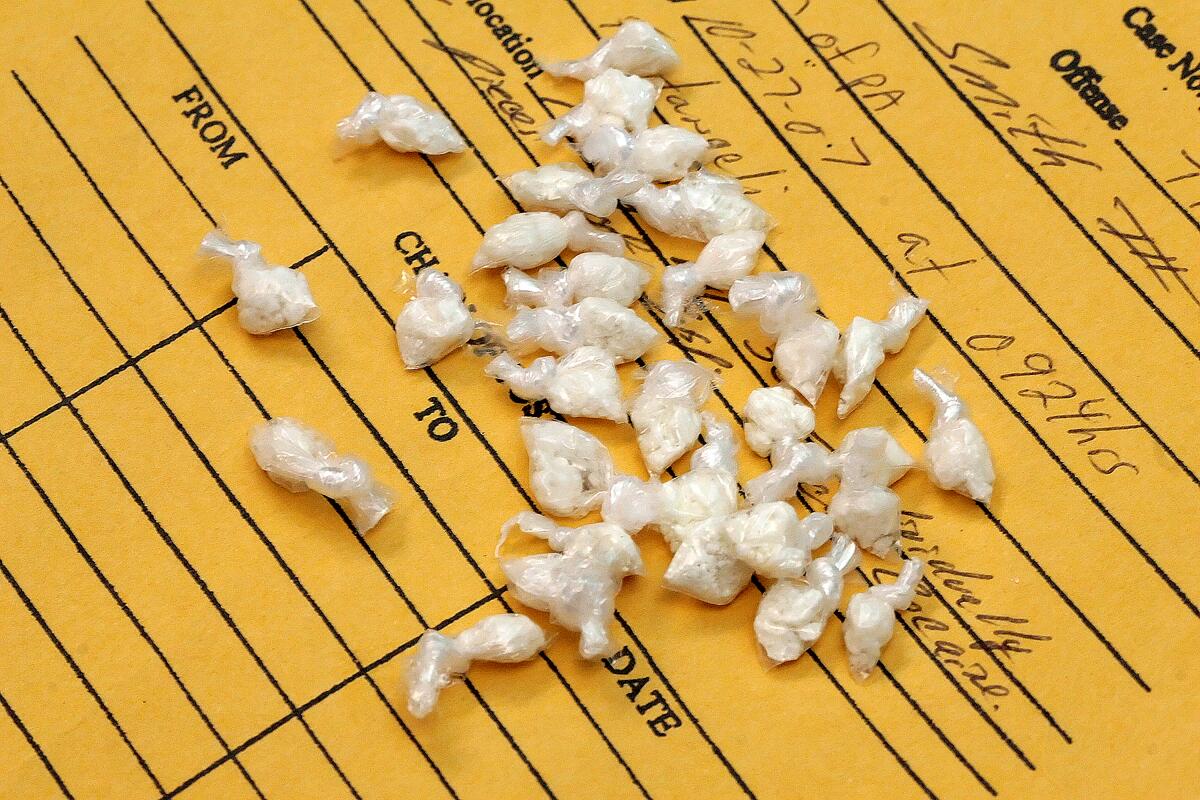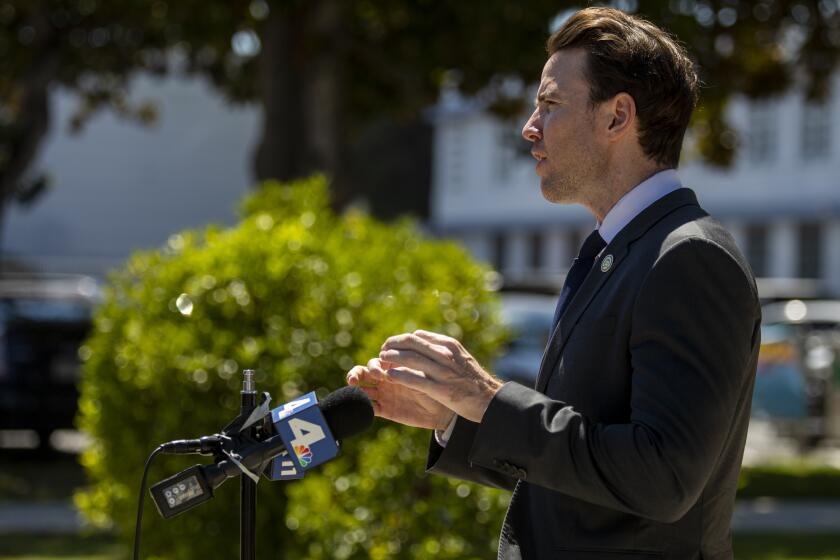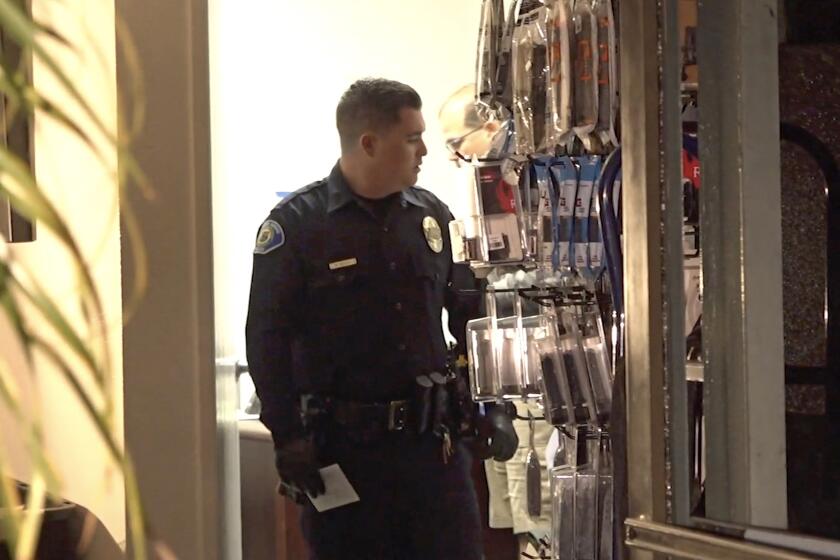Editorial: Pass this bill to end lifelong penalties for minor drug crimes

- Share via
Possession of illegal drugs in small amounts is a misdemeanor in California and could theoretically land a person in county jail for six months. Fortunately, that doesn’t happen very often because a majority of police, prosecutors and other players in the criminal justice system have come to realize that their work is more effectively devoted to crimes that are more harmful than carrying a substance intended for one’s personal use.
The prosecutorial system is following the lead of voters, who adopted Proposition 47 in 2014.
Before that ballot measure, though, simple possession of an illegal substance was a wobbler, meaning it could be charged as either a misdemeanor or a felony — and could result in some serious prison time.
Even if it didn’t, hundreds of thousands of Californians who were arrested for possession of marijuana, which is now legal in this state, or small quantities of other substances that are still forbidden, were convicted of felony charges.
Three bills to roll back or repeal Proposition 47 are grounded in fear and falsehoods and should be rejected.
Proposition 47 wisely included provisions that allowed people convicted and sentenced under earlier, more onerous drug laws to petition courts to reduce their felonies to misdemeanors. That makes perfect sense. It would be odd to saddle people with felony records for crimes that voters decided should not be felonies.
The hitch is that for people to get their records reduced, they have to petition the court and perhaps appear in front of a judge. And they had only three years to do it, after which the window closed and the old felony charges could no longer be changed. Lawmakers extended the deadline to this Nov. 4, which the ballot measure permits. But now that window is closing too, and could strand hundreds of thousands of Californians who for a variety of reasons have not yet sought to update their criminal records.
In retrospect, it seems foolish to limit the period during which a person can petition the court. The facts remain the same regardless of the date of the conviction or the petition. If the crime deserved to be downgraded in 2014, it equally deserves to be downgraded in 2023 and beyond.
It’s a serious issue. According to the Los Angeles County Public Defender’s Office, there remain 155,000 cases of simple drug possession or petty theft — also covered by Proposition 47 — that are potentially eligible for relief but have not yet been processed.
Debunked tropes about California’s justice reforms supposedly causing crime keep coming up. They were false when crime was dropping, and they’re just as false now.
That’s tens of thousands of people who, because of their felony records, go through life with their liberties and opportunities severely restricted. Collateral consequences include an inability to be hired in numerous professions as varied as banking, cosmetology and pest control, among many others. People with felony records have difficulty getting apartments, buying real estate, even coaching their kids’ soccer teams. It’s not as though there are good public safety reasons for preventing them from doing those things, as there might be with those found guilty of rape or drug trafficking. But they’re all lumped together — by law, regulation, licensing requirement, insurance considerations, custom or just plain ignorance.
It’s tempting to argue that people with eligible felony records have had their chance, and if they haven’t gotten their act together by now, it’s on them.
But many people don’t know they have this chance to clean up their records. Many might be homeless — in part because their felony drug conviction began a downward spiral that led to the loss of their jobs and homes. Others may know but haven’t mustered the courage to go back before a judge, after the ordeal of their convictions. Some might fear they will be rejected, but all should still have the chance, because clearing felony records of crimes that are no longer felonies means a more stable workforce, higher earning and more tax revenue for California.
SB 1178 would erase the deadline. But under the terms of Proposition 47 it needs a two-thirds vote in each house. It got that margin in the Senate, but now it needs it in the Assembly and could become hung up on election-year politics. Some Democrats appear to believe it’s to their party’s advantage to appear tougher on crime, so as to deprive their Republican rivals of campaign talking points. And some get fidgety about Proposition 47 because of blatantly false yet viral nonsense about the measure’s impact on crimes it has nothing to do with. So they could leave hundreds of thousands of Californians out to dry.
But they shouldn’t. It’s a worthy bill that will help the entire state. It deserves passage.
More to Read
A cure for the common opinion
Get thought-provoking perspectives with our weekly newsletter.
You may occasionally receive promotional content from the Los Angeles Times.












